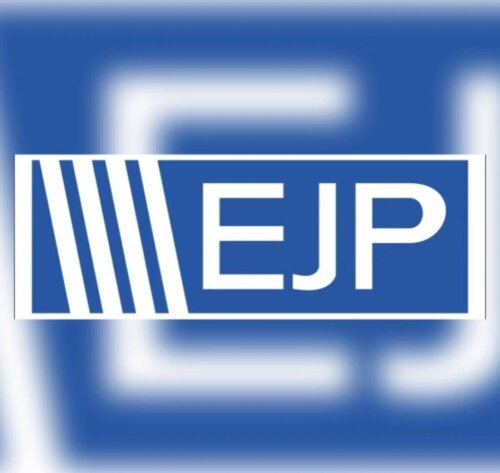Best Child Custody Lawyers in Mar del Plata
Share your needs with us, get contacted by law firms.
Free. Takes 2 min.
Free Guide to Hiring a Family Lawyer
List of the best lawyers in Mar del Plata, Argentina
About Child Custody Law in Mar del Plata, Argentina
Mar del Plata follows national civil law regulations for child custody, complemented by provincial court procedures. The core concepts are patria potestad (parental authority) and tenencia (custody or guardianship), with a focus on the best interests of the child. Courts in Mar del Plata apply these principles through the local Juzgado de Familia of the General Pueyrredón district.
The Civil and Commercial Code of the Nation governs fundamental rules about parental authority, custody arrangements and visitation. In practice, families in Mar del Plata often consider either tenencia compartida (joint custody) or sole custody to one parent, with a structured visiting schedule for the other parent. The child’s welfare and continuity of care are central to every decision.
Argentina is also guided by international commitments to child rights. The country has ratified the Convention on the Rights of the Child, which reinforces the emphasis on the child’s best interests in custody matters. See official sources for the legal framework linked below.
Argentina has ratified the Convention on the Rights of the Child, which informs custody decisions toward the best interests of the child.
For practical purposes, residents of Mar del Plata should expect to engage with a local family law solicitor to navigate filing, temporary orders, and potential court hearings. The process can involve mediation, hearings, and possible enforcement actions if orders are not followed.
Why You May Need a Lawyer
Below are concrete, real world scenarios that commonly arise in Mar del Plata where legal counsel helps protect your and your child’s interests. These examples reflect typical local issues in General Pueyrredón rather than generic situations.
- Separation or divorce and a dispute over custody, where one parent seeks tenencia compartida and the other prefers sole custody due to school or safety concerns.
- Urgent or temporary custody requests to prevent relocation or to secure a safe living arrangement while a divorce is pending.
- One parent plans to move the child from Mar del Plata to another city, requiring a formal modification of custody and a clear visitation schedule.
- Enforcement of a custody or visitation order after the other parent misses scheduled time with the child or relocates without notice.
- A situation involving unaffiliated or non biological caregivers seeking established visitation or decision making rights.
- A child with special needs requiring continuity of medical care, education, and social services, which may necessitate careful custody planning.
In each scenario, a local family solicitor can help you present the child’s best interests, assemble documentation, and advocate for arrangements that minimize disruption to the child. A lawyer can also explain temporary measures and how to seek enforcement if a court order is not followed.
Local Laws Overview
The following laws and regulations govern child custody in Mar del Plata. They combine national codes with provincial procedures to shape custody outcomes and court processes.
- Código Civil y Comercial de la Nación (Civil and Commercial Code of the Nation) - Governs parental authority, custody arrangements, and the framework for custody disputes. The Code replaced the old Civil and Commercial Codes in 2015 and guides both initial decisions and post order modifications. Source.
- Ley 26.061 de Proteccion Integral de los Derechos de Niñas, Niños y Adolescentes - Establishes the rights of minors and obliges authorities to act in the best interests of the child in family matters. It informs custody decisions, child welfare protections, and the duties of parents and public institutions. Source.
- Convención sobre los Derechos del Niño - International treaty ratified by Argentina that reinforces the principle of the best interests of the child in custody cases. See official UN OHCHR information for context. Source.
- Código Procesal Civil y Comercial de la Provincia de Buenos Aires - Governs how family matters, including custody, are processed in the Buenos Aires Province courts (including Mar del Plata). Provincial procedural rules complement the national code for local hearings, filings, and timeframes. Source.
These sources reflect the current framework used by Mar del Plata courts to decide custody cases, enforce orders, and consider the child’s welfare. For jurisdictional specifics, consult the local family court or a qualified solicitor in Mar del Plata.
Frequently Asked Questions
What is custody and parental authority in Argentina?
Custody in Argentina is guided by parental authority (patria potestad) shared by both parents, unless a court orders otherwise. The focus is on the child’s best interests.
How do I start a custody case in Mar del Plata?
You begin by filing a petition in the local Juzgado de Familia of General Pueyrredón. Your solicitor prepares documents and requests temporary measures if needed.
When can I get temporary custody or emergency measures?
Temporary measures can be requested at once if there is reason to protect the child’s welfare, safety, or stability. A judge may issue provisional orders pending a full hearing.
Where are custody cases heard in Mar del Plata?
Most custody matters are heard in the Juzgado de Familia within the General Pueyrredón jurisdiction in Mar del Plata.
Why is the best interests of the child central to custody decisions?
The best interests standard guides decisions about living arrangements, education, and welfare. It prioritizes stability, safety, and the child’s emotional needs.
Can custody be shared between parents?
Yes, tenencia compartida (joint custody) is allowed where appropriate. Courts assess feasibility based on parental cooperation, the child’s needs, and stability.
Should I hire a local solicitor in Mar del Plata?
Yes. Local lawyers understand provincial procedures, local judges, and common practices in Mar del Plata. They can tailor strategies to your case.
Do I need to pay for a lawyer in a custody case? How much?
Costs depend on the case complexity and the lawyer’s rates. Initial consultations may be charged, and ongoing representation incurs hourly or fixed fees.
How long does a custody case typically take in Buenos Aires Province?
Timeline varies by case complexity. Simple joint custody matters may resolve in a few months; complex disputes can extend 6-12 months or longer.
Do I need to prove paternity for custody?
For parental authority, both parents generally participate regardless of marital status. Paternity may be established where necessary for guardianship decisions.
Can I relocate with my child after custody is granted?
Relocation requires court approval if it impacts the child’s residence, schooling, or welfare. A judge evaluates the impact on the child.
How can custody orders be enforced if not followed?
Enforcement is sought through the court, which can impose remedies or modify custody to ensure compliance with the order.
Additional Resources
The following official resources provide authoritative information about child custody and related rights in Argentina.
- Argentina Ministerio de Justicia y Derechos Humanos - Official national portal for normative information including the Civil and Commercial Code and family law guidance. Source.
- Centro de Información Judicial (CIJ) - Centralized information about the judiciary, court procedures, and resources for families. Source.
- Defensoría del Pueblo de la Provincia de Buenos Aires - Provincial body that protects residents' rights, including children and families, with guidance on access to justice and protective measures. Source.
Next Steps
- Clarify your custody goals and gather key information about your child and the family situation. Timeline: 1-2 weeks.
- Find a local family law solicitor in Mar del Plata with experience in custody matters. Timeline: 1-3 weeks for initial outreach.
- Collect essential documents: birth certificates, school records, medical histories, prior orders, and communication with the other parent. Timeline: 1-2 weeks.
- Schedule an initial consultation to assess options (joint custody, sole custody, or temporary measures). Timeline: 1-2 weeks after documents are ready.
- Decide whether to seek temporary measures and prepare a plan for the child’s current stability and safety. Timeline: immediate to 2 weeks after consultation.
- File the petition with the local family court and prepare for hearings, including witness and evidence lists. Timeline: 2-6 weeks after filing.
Lawzana helps you find the best lawyers and law firms in Mar del Plata through a curated and pre-screened list of qualified legal professionals. Our platform offers rankings and detailed profiles of attorneys and law firms, allowing you to compare based on practice areas, including Child Custody, experience, and client feedback.
Each profile includes a description of the firm's areas of practice, client reviews, team members and partners, year of establishment, spoken languages, office locations, contact information, social media presence, and any published articles or resources. Most firms on our platform speak English and are experienced in both local and international legal matters.
Get a quote from top-rated law firms in Mar del Plata, Argentina — quickly, securely, and without unnecessary hassle.
Disclaimer:
The information provided on this page is for general informational purposes only and does not constitute legal advice. While we strive to ensure the accuracy and relevance of the content, legal information may change over time, and interpretations of the law can vary. You should always consult with a qualified legal professional for advice specific to your situation.
We disclaim all liability for actions taken or not taken based on the content of this page. If you believe any information is incorrect or outdated, please contact us, and we will review and update it where appropriate.










